Supernatural Inspiration: Leave the World Better Than You Found It
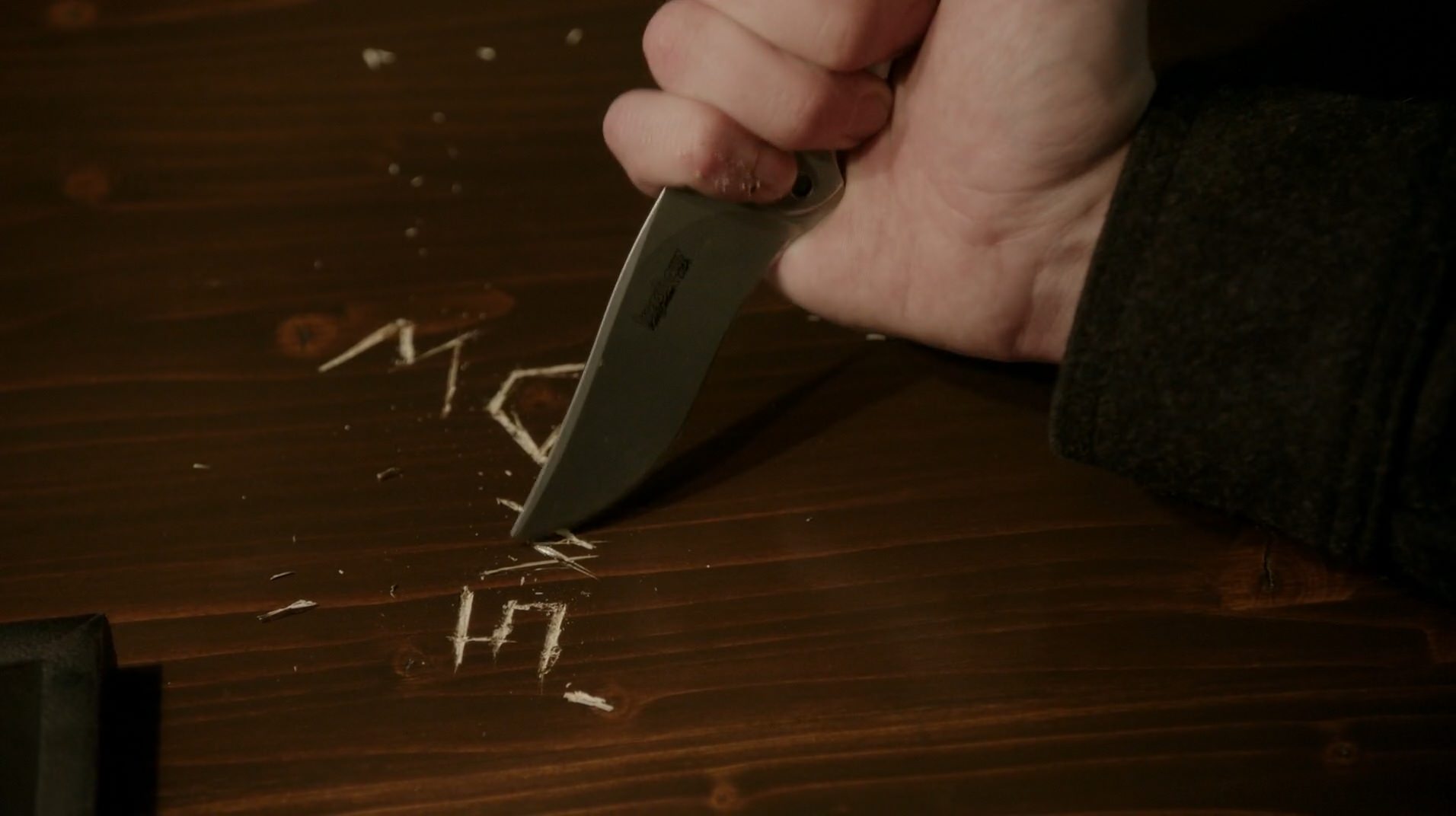
“You know, I was thinking about what Bishop said. About… What do you think out legacy is gonna be? When we’re gone, I mean, after all the stuff we’ve done, you think folks will remember us? You know, like, a hundred years from now?”
Dean makes this statement at the end of “The Memory Remains,” and it has profound meaning. We all want to be remembered. We all want to know that over time—after we’re no longer here—that we’ll have left something behind that people will remember us for. It’s human nature. We seek to find that meaning of life and need to build up our legacies. We all want to be the one that says proudly “Kilroy Was Here.” However, no matter how much money we make, no matter how many experiences we have, no matter the prestige we earn, at some point, we will die and there will only be fleeting memories left behind.
And so, Sam answers his question by stating, “Well, I mean… guys like us, we’re not exactly the type of people they write about in history books, you know? But the people we saved, they’re our legacy. And they’ll remember us and then I guess… we’ll eventually fade away, too. That’s fine, because we left the world better than we found it, you know.”
Leaving the world better than we found it. What an excellent lesson and sentiment. What a powerful and humble statement for Sam to make. Sometimes we all need a reminder what life is about—or what it should be about. We should all strive to live this credo, to achieve this type of legacy.
Even so, Dean feels a compulsion to leave their mark anyways. Perhaps it’s because the Men of Letters Bunker has become their home in his eyes as the Impala has been their whole lives. He chooses to carve his initials into the wood of one of the lofty tables that populate the library. He does this deliberately, as if to say that he “will not go gently into that good night” and be obliterated from the record entirely. Maybe the future won’t know his name—nor will they know what D. W. and S.W. stand for, but it doesn’t matter. Not really. It only matters that he and his brother share this moment together as they once did so long ago, making a conscious decision to mark this moment in time and their shared cause to make a better world. Dean has always been far more about action than the intellectual underpinnings. He certainly understands them absolutely, but to truly live them and to take action rather than simply philosophize about things has always been more of his speed.
It’s also a clear example of Dean’s utter rebellious nature. He knows that while he sees the Bunker as their home, it has been usurped or reclaimed by the British chapter of the Men of Letters—even if he’s not aware of the bug placed or the invasive search of their private possessions. He knows that they would find his “defacing” of their furniture to leave his mark as an abhorrent act. And yet, it’s much more than that. It isn’t simply about leaving a physical memento of their existence. It is that mark that he hopes someone will discover someday in a hope to perhaps dig into who they were and what they did even if it remains elusive. Even if this is not spoken aloud, Dean would love to have their legacy of “saving people, hunting things,” family business” remembered in some small gesture. The British Men of Letters have warped so much of that credo—and by rebelliously carving their name into their territory Dean is reclaiming it for both him and Sam as they go about their attempt to build a better world. Just as they refuse to follow the British Men of Letters’ black and white code, the Winchesters hope to leave their mark by doing the right thing, by following their gut instinct on how they go about hunting and why they do it that way. Carving their initials is simply Dean’s answer to Sam’s words—the action to punctuate the sentiment.
I also think about the inversion of the Winchester motto of “saving people, hunting things, the family business,” becoming “hunting people, killing them, the family business” to Pete Bishop. It rattled Dean, sparking him to perhaps to take a step back and assess where they’re at and where they’re going. Pete was doing these things for all the wrong reasons—building a legacy that meant death and evil being put forward into the world. Pete did these things for selfish gains—or tried to spin it as his “good deed” to save the town by returning to the family legacy. Dean may have needed to hear this to reconsider the motto he’s carried with him for so long—and make sure he hasn’t inverted it the way Pete has. It had better be in the efforts to save people—not simply to kill or eliminate the supernatural that may very well be living peacefully or quietly—as say Garth is hopefully continuing to do.
We all must take time to assess where we’re at and where we’re going, too. We all must see if it lives up to Sam’s words about leaving the world a better place than we found it—and it is possible that both brothers may do just that in relation to the disaster that has been their involvement with the British Men of Letters—and the coming fight they’ll have to have against them. After all, they have always tried to live in shades of grey—even if that’s been contentious for them at times. Sam once told Dean that their job is not to kill the supernatural. It is to hunt evil. He tells him, “No, Dean, that is not our job. Our job is hunting evil. And if these things aren’t killing people, they’re not evil!” It’s why they choose to let Magda go and why they choose not to eliminate the soldiers that held them hostage after being caught by the Secret Service. Sam and Dean Winchester also live by a code that forces them to live in boundaries—one that asks them to ask serious questions of themselves as each situation arises, rather than adhering to a strict blanket understanding and response to anything and everything. By choosing not to simply see all supernatural or all “other” as intrinsically evil, Sam and Dean open the door for themselves to make the world a better place—to build that better world. Pausing in this moment to examine that may allow them to see where they’ve been and where they are going and how that will shape their legacy—no matter how long it shall live beyond their actual life spans.
We also see this juxtaposition beautifully illustrated in the Sheriff in this episode. He, by being part of the Bishop family, knew the terrible secret and of the secret pact made with the pagan god and how it fed the wealth of the town. Instead of continuing such a gruesome legacy or benefiting from its contract, he chooses instead to end it. He sells off the various properties and ceases the sacrifices. It just did not seem righteous to make the world better through such slaughter and bloodshed. Its wrong may have allowed for jobs and factories and other elements of the town to prosper, but the cost for that prosperity was much too high. The legacy would not be the good jobs or the benefits for the town. It would be those lost—those sacrificed for the wealth of one family. This sheriff chooses to end this—which is its own legacy in many regards. He wants the world to be better and by removing a vicious pagan god from its landscape he hopes that it will be lead to a better world later on.
In many ways, this is a great jumping point for me to post a bit of an update on my own attempt to leave the world better than when I found it. This brotherly exchange hit home for me—and came just when I needed it after having a rather rough and stressful week. The idea that while my name or my story may not live beyond me is sobering to consider and yet to know that my impact may last far longer than the recognition really meant a lot. It encapsulated so much of what I’m trying to do with my own life and how I want to approach the world around me—both at the micro and macro levels.
So, how am I making the “world better than we found it,” you ask?
As you know, I started working at my local library part-time in February. It has been super busy and super crazy scheduling so far, but overall it is exactly where I need to be and it is the job I’ve been looking for all along. I am convinced more than ever that to become a librarian is my true calling, and that I must work hard and do whatever it takes (short of, you know committing a crime OR conjuring up a pagan god to make it happen) to become one. Working at the library has shown me the better side of human nature. It has given me a chance to really immerse myself in my community. I’m starting to recognize the names and faces of some of the “regular” patrons that are using the library to better themselves or their children. I’m starting to see the diversity of my community in its many hues, ages, religions, genders, interests, and it is beautiful.
And Sam’s statement totally matches this year’s national summer reading program theme: Build A Better World. I’m thrilled that this is the motto this year as it is a simple statement and truth. Through education and learning we can truly build a better world for a better tomorrow and leave the world truly better than when we found it. I’m finding that I’m studying as much as I can when I’m not working my retail job or at the library (or tutoring) and learning so much about as many things as I can simply so I can become a better librarian in the future. I hope that by building a smarter more knowledgeable me that I can be contribute to building that better world down the road. (Side note: if your library has any of the Great Courses on DVD/audio, check them out. I’m impressed with the depth of the lectures I’ve watched.)
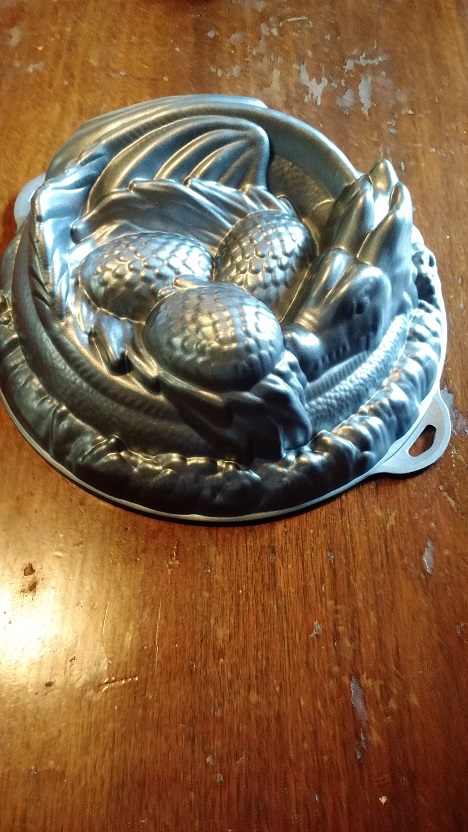
I’m also trying to champion some of the lesser known services in our library as I encounter them. Everyone knows that libraries carry books and newspapers and magazines and DVDs. Lots of them carry audio books and CDs. But mine? It carries cake pans. That’s right. Cake pans. You can actually check out a cake pan in the shape of nearly anything you can imagine and take it home to make a fancy cake. Yes. This is a thing we do here at my library. The baker in me was gleeful to find this treasure. We have some really cool ones, including one of a sleeping dragon. A dragon cake pan! How many libraries boast of something so utterly unique and whimsical? Just how many? (Okay, other libraries in our system also carry cake pans, but my library started it!)
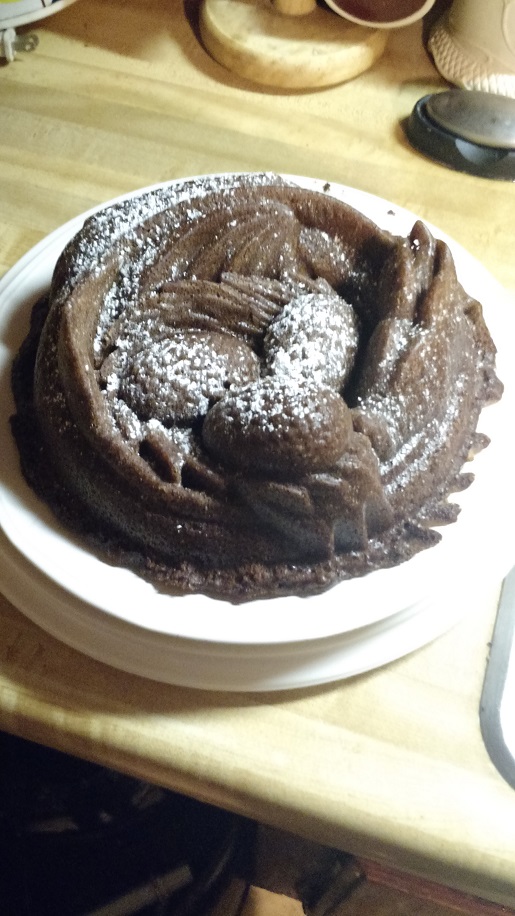
With that, I plan on baking one cake a month to promote this little known resource. Think little kid birthday parties and having to kick a pan around the house for years after the kid outgrows Elmo. The library solves that problem for you! I want to raise it up and then perhaps we can eventually have a contest to remind people we have these. Not sure which one I’ll bake next. Depends on which one I find and what one I think would be neatest. (By the way, the dragon is delicious in chocolate.)
Sam’s words have also reminded me of a poem I heard on the Writer’s Almanac about kindness. It is perhaps one of the best ways we can live up to his desire to leave the world a better place than we found it. This is a small snippet from the poem that I feel really connects to what Sam said here so simply. It is an encapsulation about what it means to be kind, why it is important, and why it is perhaps one of the things that will outlast any reputation we may build or any story we may write into the history of humankind.
Yes, of course,
in the end so much comes down to privilege
and its various penumbras, but too much
of our unruly animus has already been
wasted on reprisals, too much of the
unblessed air is filled with smoke from
undignified fires. Oh friends, take
whatever kindness you can find
and be profligate in its expenditure:
It will not drain your limited resources,
I assure you, it will not leave you vulnerable
and unfurled, with only your sweet little claws
to defend yourselves, and your wet little noses,
and your eyes to the ground, and your little feet.
“Be Kind” by Michael Blumenthal from No Hurry. © Etruscan Press, 2012.
I try to live up to this, too. I hope that I do in my tutoring. I couldn’t help but think about that endeavor when Sam said they would live in the minds of those they save—until they fade from the lives of their descendants and are nothing more than whispers of memory. No, I don’t hunt monsters by any means, but I do hope to make a difference by helping people learn language and history and civics and more. My tutoring group has grown exponentially since our move to the college in late November. The class is so large now that we’re even talking about possibly expanding to more than one room to make it easier for everyone to focus and hear in their small groups. We’ve gathered a diverse group. We have many people from the Burma/Thailand/Laos area, but we’re now seeing their numbers equaled by a group of Somalians of both genders that are simply there to diligently learn and grow and understand. They are intelligent, respectful, and absolutely committed to knowing more about the country they’ve come to and how to function here in a peaceful manner.
So often, I find myself utterly humbled by them. They call me “Teacher” and I am not sure that I have earned such a remarkable title as of yet. However, I find that it makes me kinder everywhere I go to have encountered these wonderful people from all these diverse backgrounds. I treat them as respectfully as I can and they do the same back. They have shown kindness that I wish I could say I see as often elsewhere in my daily routines. One of our Somalian learners brought a traditional food to share—all to thank us for our taking the time to teach him. It is in a moment like that that I find the truest meaning of life: to be kind.
I think it’s one reason why I love Misha Collins and his charity Random Acts so much. The notion that just by bringing kindness to the world and believing so earnestly that it can and will change it is a brave undertaking indeed. And yet, I find myself swept up in that same philosophy when I work with these learners.
Sam’s words also touched me on another level because I kept coming back to what my legacy in this will be. I don’t necessarily do this to get recognition or accolades or attention. I do it because I believe it is right and just and one of the only real ways that we’ll ever find a way to bridge the divides between religions and cultures and languages. I do it because I would like to think that perhaps my name won’t carry forward and I may not be exalted as a heroic figure or remembered as a great person but that perhaps someone I helped with a concept such as civic duty or social justice may someday go on to do something great because someone like me took the time to help.
I talked with one learner I hope will do that this past week. She’s a beautiful Somalian woman who has a brilliant smile and a brilliant mind. I asked her, when we had a moment of downtime, what she hoped to study or what she enjoyed. She stated that she’d like to become a historian of African history. The thought that someone I’m helping with some basic vocabulary and math and science has such a lofty goal inspires me. She wants to explore the world from a perspective not often explored fully in the West and perhaps because she is African it may have more meaning and weight. What if she is one of my legacies? What if, by helping her to learn and master English, she in turn goes on to write a really fascinating or powerful text on Africa or her culture? It just made me pause a moment when Sam said that he believes that those they save are their legacies for this very reason.
It reminded me that everything is connected and everything builds on one another.
Which brings us back to “Build a Better World.”
Perhaps if more of us were like Sam and sought less recognition, less drive to leave our mark on the world, less need for prestige we’d focus on what is really most important: leaving the world better than when we found it.
After all, the rules of life are simple: Be kind. Do the right thing. Live with compassion in your heart. Find the path that helps you to leave a legacy that will matter—even in some small way. Remember all that you do touches someone some way. Be kind.
The rules may be simple, but they are oh so hard to fulfil sometimes. It’s why we must work at it each day.
In so many ways, that is Sam and Dean’s legacy to me. They may use weapons and spells and go after monsters (and occasionally bad people) that contradict these tenements, but nevertheless, it is what sticks out to me. Seeing them carve their initials into that Men of Letters table was powerful, yes, but the intangibles are the real end game for me.
I just hope that I live up to those lofty ideals in my real life—and I hope that this speech inspired the very same in you.



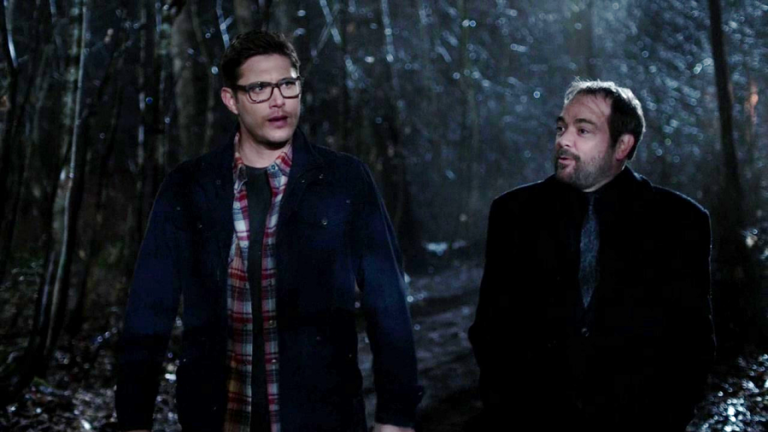
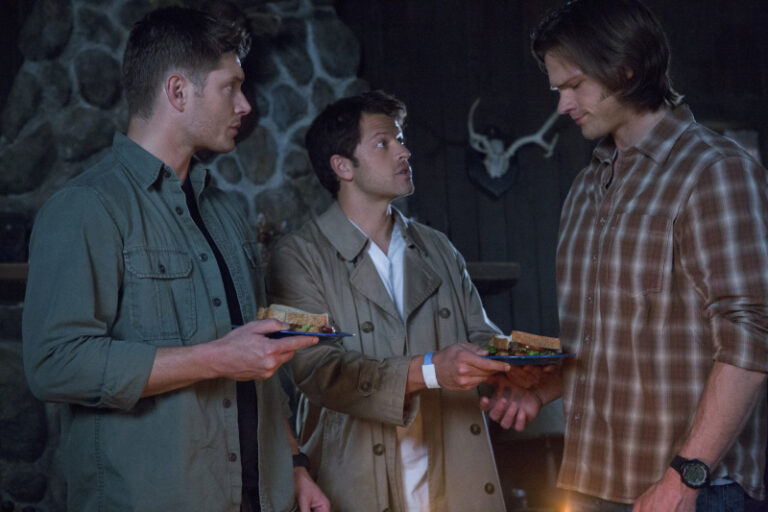
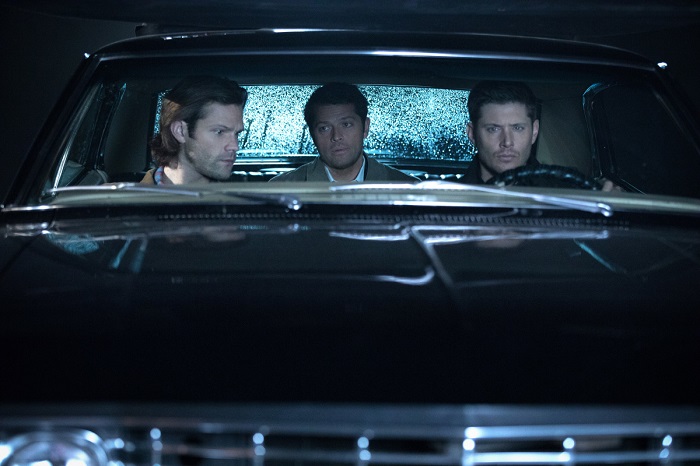
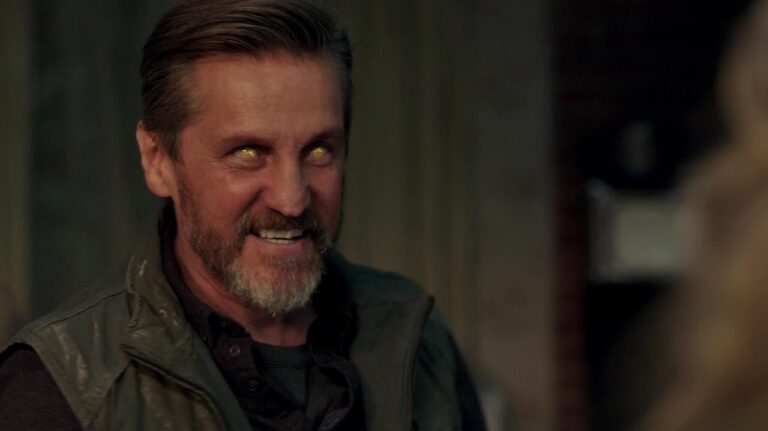
Leave a Reply